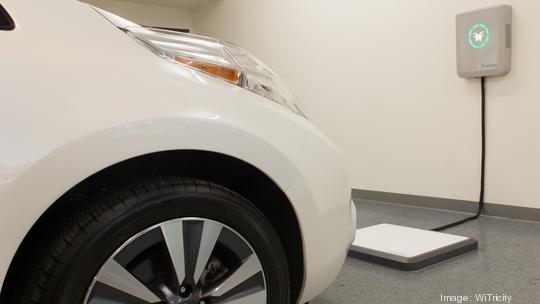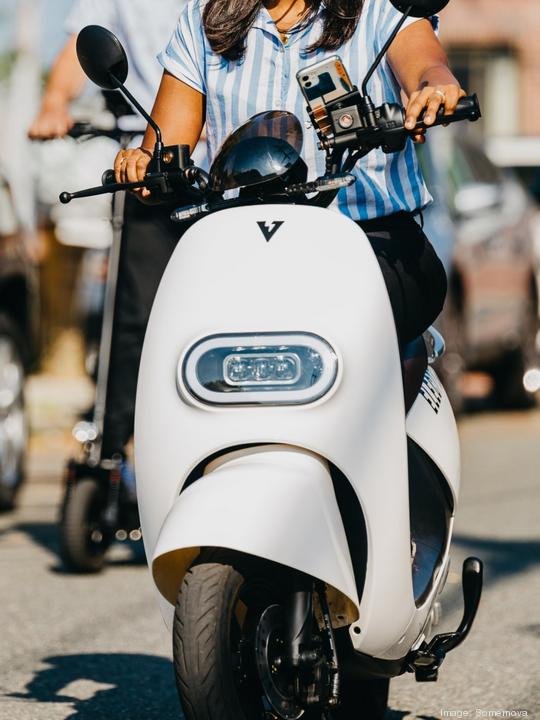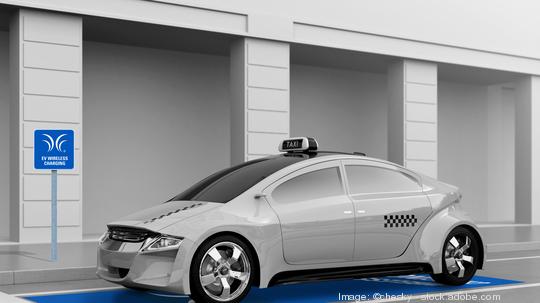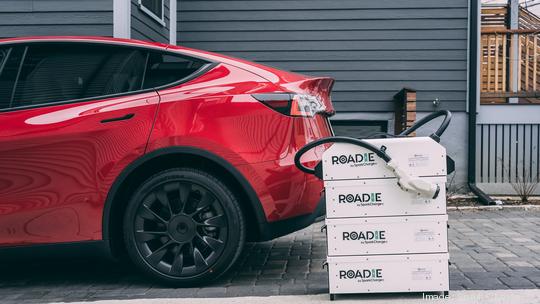
This March, Boston was at the forefront of pushing for environmental justice when Gov. Charlie Baker signed the climate bill, to achieve net-zero emissions in 2050.
These three startups have been pioneers in the electric automotive space prior to large shifts in legislation. Each company accredits their innovation to Boston’s large dedication to innovation and entrepreneurship.
- SomEV

SomEV, founded in 2019, is an electric micro-mobility company that sells e-scooters, e-mopeds and e-bikes. SomEV then has clients lease the battery needed to operate the e-transportation.
Doing so allows clients to drive sustainability efforts by not using gas vehicles while having the flexibility of operating on a month to month battery lease, leaving the battery science to the experts: the founders Natasha George and Reece Daniel.
“People were initially hesitant to adopt electric riding, but once they test drove with us they just fell in love with it,” George said.
The husband-wife duo are "Boston transplants" who want to serve the community in a space where “people are open to adopting change here a lot faster [in Boston] than other places,” George said.
While the micro-mobility sector is growing, states are just now working on policy-building around them.
In Massachusetts, clients do not need to have electric mopeds registered in the state.
“We’re in a state where people are becoming more conscious and there are all of these policies being pushed out, so I think people are looking for how they can reduce carbon emissions in their daily routine and a way they can do that is with us,” George said.
SomEV plans to remain a small, self-run company that wants to always work at its own pace. They are not actively hiring but bring on seasonal paid internships each summer in their busiest seasons.
2. WiTricity

WiTricity, a MIT spinout founded in 2007, is tech company that creates wireless charging for electric vehicles.
The company works with automakers to set a standard for e-charging. The key is that it's convenient and it's able to work for all electric cars despite the make and model.
The wireless charging is made to be stationary in a home garage, on the floor, and it begins charging as soon as a vehicle pulls over it. The electric vehicle has the smart technology to recognize that it is above a charger and then obtains full battery life in three hours.
While WiTricity has been working on creating this technology for 14 years, it was not until October 2020 when policies were implemented around electric cars globally and in the U.S., ultimately allowing faster production rates.
“It’s just the beginning for us,” CEO Alex Gruzen said.
This year WiTricity raised $18 million funding from Future Shape in addition to a previous $34 million raised last October, yielding $52 million in four months. “That funding is giving us the resources to make the final push to launch,” Gruzen said.
WiTricity’s mission is to make owning an electric car aspirational.
“It’s not just about being environmentally conscious or reducing cost, it’s about the user experience being just as good as it is with a traditional car, if not better,” Gruzen said.
The company has 50 employees. WiTricity is looking to take on 15 additional employees in engineering and business development within the next few months.
3. SparkCharge

SparkCharge is similar to WiTricity: Both operate in the electric car charging sector.
But SparkCharge is seeking to create portable, on-demand charging stations.
SparkCharge’s breakthrough product "Roadie" is an ultrafast, portable EV charging system made to fit in the trunk of any vehicle and carried by hand if need be.
In comparison to competitors, SparkCharge is 100% green and can charge an electric vehicle at the rate of one mile every 60 seconds.
There is also "BoostEV," a mobile app offers an on-demand approach to delivering Roadie. The app allows electric vehicle owners charge their EVs anywhere there is a charging station, similar to UberEats or Grubhub.
“Tearing down those barriers to electric vehicle options and making it so seamless for anyone to charge their car with a push of a button is what sets us apart and is a big contributor to growing the electronic market,” CEO Joshua Aviv said.
This past year the company was on ABC’s "Shark Tank" and secured a million deal that has now turned into $4.5 million raised.
After the exposure from "Shark Tank," “we’re definitely going through a growth spurt,” Aviv said.
SparkCharge has a 20-person staff and is actively hiring.
The company will continue to be based in Boston as it grows.
“We’ve been really fortunate to be a part of this growing cleantech sector here in the Boston-area. The talent for this industry is here,” Aviv said.
An earlier version of the story had the incorrect name for SparkCharge's CEO. Joshua Aviv is the company's chief executive.



